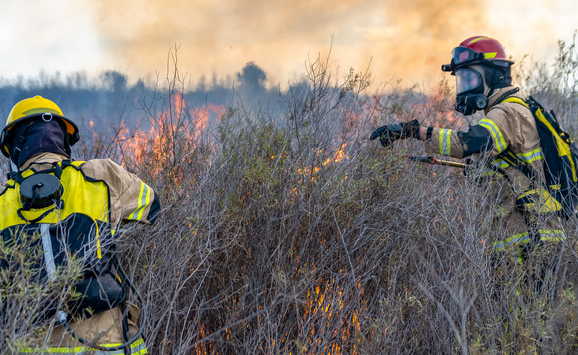A class-action lawsuit (complaint here) by Farmers insurance against Chicago and other Illinois cities has gotten some attention (e.g., here, here, and here) because of its connection with climate change. In simple terms, Farmers (along with other insurers and property owners) suffered a lot of damage as a result of floods in April of last year, most notably in the form of sewer backups into homes and businesses. Farmers claims in the lawsuit that local governments in the area could have done more to prevent this damage, and moreover should have been better prepared since rainfall has increased in the Chicago area in recent decades, ostensibly as a result of climate change.
Commentators have lept to draw broad conclusions about the insurance industry's reaction to climate and implications for adaptation policy at the local level. For example, Rob Moore at NRDC argues that "[this l]itigation is a symptom of what happens when the response to a recognized problem is insufficient. " I don't agree with that view as a general rule - often litigation or at least the threat of litigation is the first and best method of preventing harms - but in this specific case it may be correct. If governments fail to adapt to changing conditions, they should expect litigation as well as political pressure. It seems premature to declare broad conclusions based on a single, newly-filed case, however, and trying to do so risks simply fitting the case into one's preexisting worldview.
Instead, it's worth taking a closer look at the case itself first. It strikes me as unusual - admittedly I'm no expert in insurance cases or even civil litigation generally, but I wouldn't have expected governments to be liable for these kinds of harms. Almost none of the coverage of the case has explained why Farmers thinks they are. I'll try to do so here.
State and local governments generally aren't liable for failing to do something you would expect them (or they have promised) to do. For example, you can't generally sue the police for failing to keep you from being robbed, or the fire department for failing to put out your house fire in time. This is in contrast to private relationships where such a duty may (but is of course not always) created. For example, if you rented a Chicago apartment during the April floods, you might be able to sue your landlord for damage to your belongings if your apartment floods with sewage, even if you couldn't sue the city. Let's look at that simpler, private case. Your landlord would likely argue in response that the floods were an unforeseeable event (an act of God), and that therefore he or she is not liable - in legal terms, either the landlord didn't cause the damage or was not negligent. Ah, but you might argue in response, the flood was foreseeable - climate change is causing more extreme weather, as documented by increasing rainfall totals over the past few decades. So whatever precautions the landlord had been taking are now inadequate, in fact negligently so, and failure to improve them means the landlord did cause the damage after all.
Who's right? Is a slightly higher risk of flood due to climate change enough to make the damage foreseeable? I don't know, and a judge or jury will have to decide. But it's not completely implausible.
But what about local governments? On what grounds do they have a duty to prevent flood damage (I mean a legal duty, not a general political responsibility - obviously basic infrastructure is a key responsibility of government). Generally states (and by extension local governments) are sovereigns, immune from suits. As mentioned above, don't try to sue the police. But there are many exceptions to that, often created by state legislatures themselves. And that's the case here. Under the 1965 Illinois Local Governmental and Governmental Employees Tort Immunity Act, local governments are specifically made immune from suit over a wide range of activities, including "failing to enforce any law" (i.e. no lazy police lawsuits), issuing or not issuing any license (i.e. don't go after the city if your licensed interior decorator ruins your feng shui), or even libel and slander (don't try to sue city officials for badmouthing your business).
But the law says local governments do have a duty to construct and maintain their property in "a reasonably safe condition", and are liable for injuries that result if "it is proven that [the government] has . . . notice" that its property is not safe. This is the provision that Farmers points to, claiming that the storm sewer system (and in fact also the water within it) are government property that it failed to maintain in a reasonably safe condition despite having adequate notice that it was inadequate. Evidence of that notice is the county's own Chicago Climate Action Plan. (There are also some takings claims in the suit, but analyzing them gets complex quickly).
Will this argument succeed? I don't know. It's not clear whether the stormwater system (or certainly the water within it) will be considered "property", or whether those who suffered damage can be considered "users" with injuries in the sense covered by the law. But, again, it does not strike me as a frivolous argument. If you think the goal of the lawsuit is not so much to recover damages but spur government action (i.e. adaptation) that will reduce future losses, the lawsuit may indeed work, whether Farmers wins or not.





